
67 Chess Quotes You May Not Have Heard Before
Sixty-four is too easy for a chess article, so here are sixty-seven chess quotes you may not have seen before. Or maybe you have... Some stand on their own, some have a bit of commentary, and all are hopefully interesting. Enjoy!
Jose Capablanca, "Chess Fundamentals" (1921)
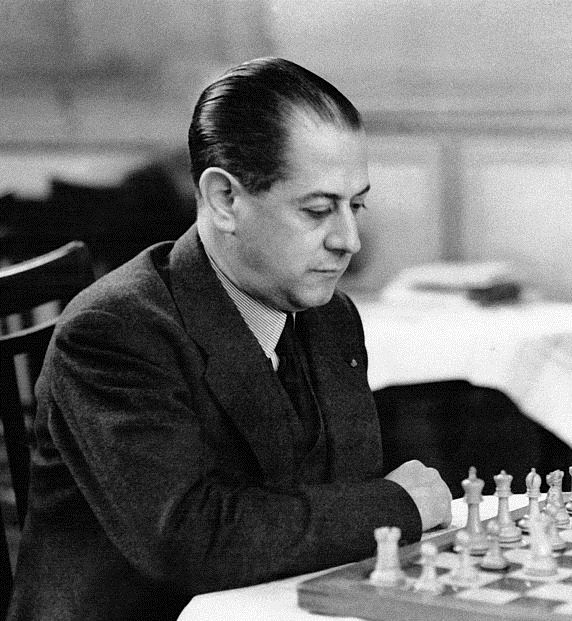
- “A book cannot by itself teach how to play. It can only serve as a guide, and the rest must be learned by experience.”
- “In order to improve your game, you must study the endgame before everything else. For whereas the endings can be studied and mastered by themselves, the middle game and opening must be studied in relation to the end game.”
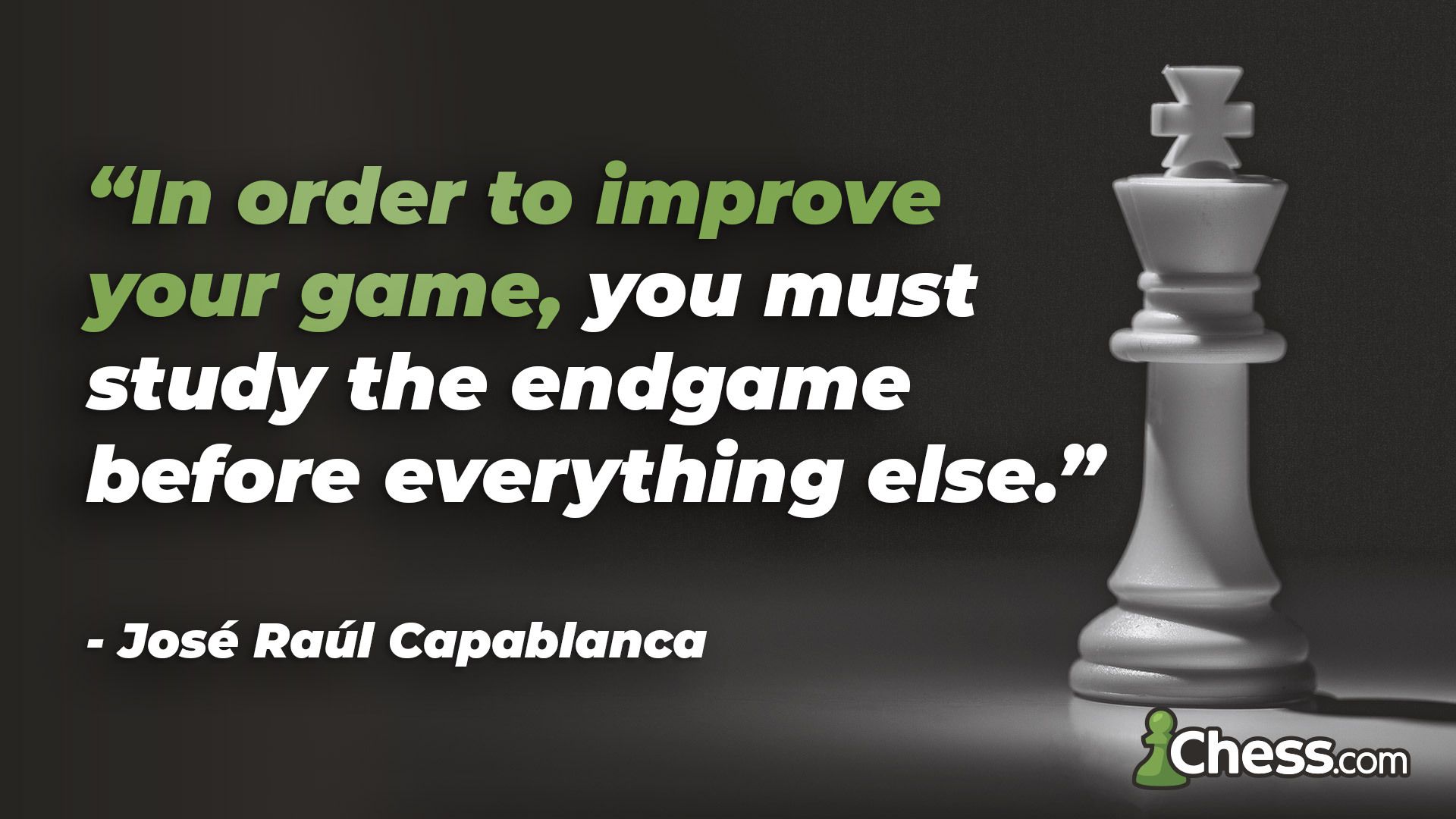
Richard Reti, "Modern Ideas in Chess" (1923)
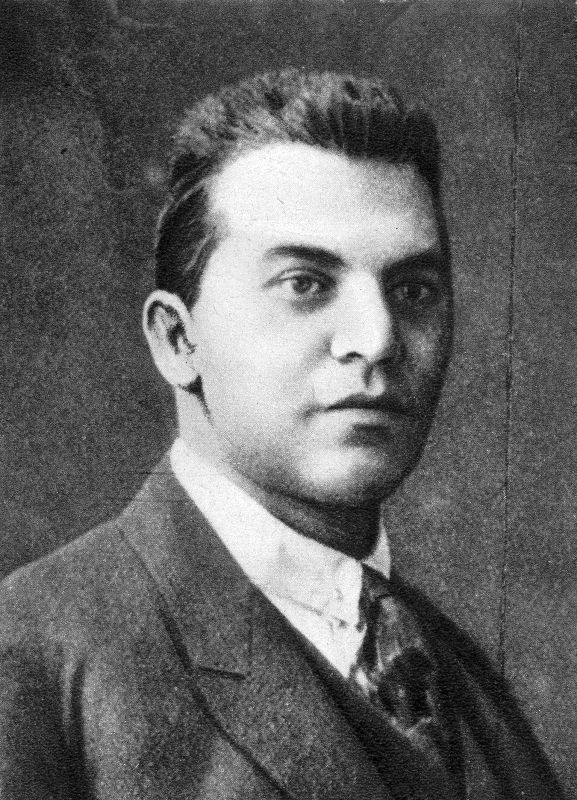
- “In chess, we get a fighting game which is purely intellectual and excludes chance.” Indeed, this is what draws some of us to chess!
- “[Wilhelm] Steinitz in his scheme of play endeavored, contrary to [Paul] Morphy, to bring about a close[d] game.”
- “[Harry] Pillsbury in his play was a true American. His games ... show astonishingly big lines in their undertakings and have a refreshing effect upon the onlooker through the energy in their execution.”
- “He is the greatest artist amongst chess players.” — on Akiba Rubinstein
- “There never occurs in practice either quite an open or quite a close position, but that we get a position containing open and close elements.”
- “After the world war, chess and the revival of chess tournaments have made a bridge for intercourse between erstwhile hostile nations and have thus done their part towards international reconciliation more quickly than science or art could do.”
Aron Nimzowitsch, "My System" (1925)

- “In my opinion, the following are to be regarded as the elements of chess strategy: 1) The center. 2) Play in open files. 3) Play in the 7th and 8th ranks. 4) The passed pawn. 5) The pin. 6) Discovered check. 7) Exchanging. 8) The pawn chain.”
- “Never play to win a pawn while your development is yet unfinished.”
- “One of the principal requisites of good chess is the ability to treat both middle and end game equally well.”
Collected by Irving Chernev in "The Chess Companion" (1968)
- “You may learn much more from a game you lose than from a game you win.” — Jose Capablanca
- “I never read a [chess] book until I was already a master.” — Reuben Fine
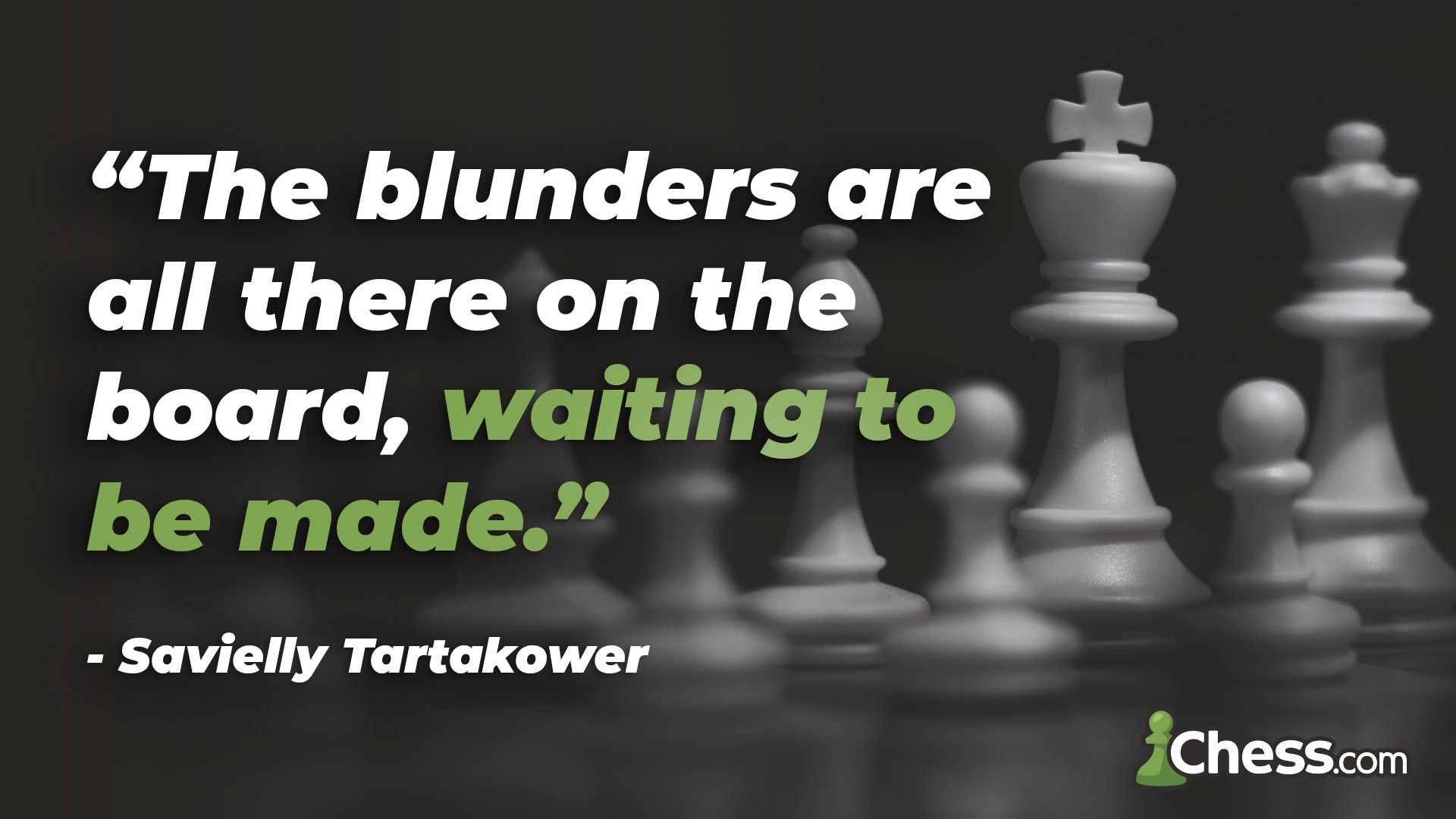
- “The blunders are all there on the board, waiting to be made.” — Savielly Tartakower

- “It is not a move, even the best move, that you must seek, but a realizable plan.” – Eugene Znosko-Borovsky
- “Pawn endings are to chess what putting is to golf.” — Cecil Purdy
Alexander Kotov, "Think Like a Grandmaster" (1970)

- “Only a severe self-critical outlook will help a player to assess his strong and weak points and so further the process of improving his play.”
- “Once there is the slightest suggestion of combinational possibilities on the board, look for unusual moves. Apart from making your play creative and interesting, it will help you get better results.”
"The Mammoth Book of the World's Greatest Chess Games" (1998)
- “If you want everyone to believe that you really did play a fantastic combination, be sure to play it in a tournament game.” — Graham Burgess on Adams-Torre, 1920
- “Knowing which pieces you want exchanged is a great help in finding the right moves.” — Graham Burgess
- “It doesn’t matter how strong a player you are, if you fail to register some development in the opening, then you are asking for trouble.” — John Emms
- “Stay flexible. Be ready to transform advantages from one type to another.” — John Nunn
On the World Champions
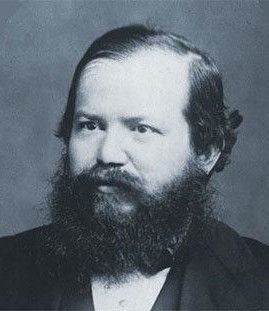
- “He went out of his way to provoke the opponent to attack, and, reeking of contempt and crusader's zeal, devoted himself to consolidating some of the most hideously unconsolidated positions ever seen on a chessboard.” — Robert Byrne on Wilhelm Steinitz
- “It is no easy matter to reply correctly to [Emanuel] Lasker's bad moves.” — W.H.K. Pollock
- “The greatest compliment one can pay a master is to compare him with [Jose] Capablanca.” — Irving Chernev
- “It was impossible to win against Capablanca; against [Alexander] Alekhine it was impossible to play.” — Paul Keres
- “When Max Euwe of the Netherlands won the world title in 1935 and kept going in a glorious career, that country became a beehive of chess and it still is.” — Robert Byrne
- “[Mikhail] Botvinnik was a virtuoso of counterattack and so was adept at winning with black. He also constructed fascinating opening systems.” — Robert Byrne
- “The peculiarity of his style is that only rarely does he make moves which no one else would make.” — Max Euwe on Vassily Smyslov
- “For inspiration, I look to those great players who consistently found original ways to shock their opponents. None did this better than the eighth world champion, Mikhail Tal.” — Garry Kasparov
- “When his opponent forces him into wild play, his performance is stunning.” — Robert Byrne on Tigran Petrosian
- “He was the first really versatile player. I like his extensive and comprehensive play very much.” — Vladimir Kramnik on Boris Spassky
- “When having an edge, [Anatoly] Karpov often marked time and still gained the advantage! I don't know anyone else who could do that, it's incredible.” — Vladimir Kramnik
- “Really deep opening research has been a hallmark of [Garry] Kasparov’s domination of world chess. He does not just try to find new moves, but whole new plans and strategies.” — Graham Burgess
- “I don’t know exactly how many lines he’s established, but you get the impression that for the last 10 years we’ve only been using his ideas.” — Viswanathan Anand on Vladimir Kramnik
- “Vishy Anand is the most versatile world chess champion. After all, he won world championships in classical matches, knockouts, rapids and blitz and dominated the advanced chess in which players are able to consult the computers.” — Lubomir Kavalek
- “Magnus [Carlsen] has many good qualities... he is very versatile and he can play a lot of positions at a very high level. He's also very flexible. And he has this amazing talent for grinding on, as you say. So that combination I was unable to deal with.” — Viswanathan Anand after the 2013 World Championship
On Bobby Fischer
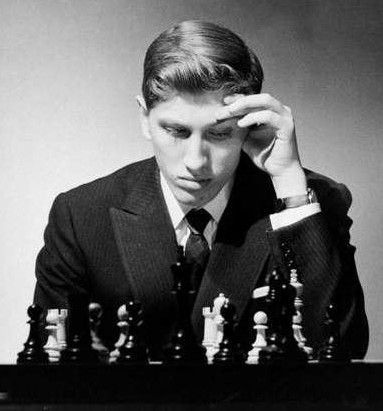
- “What I admired most about him was his ability to make what was in fact so difficult look easy to us. I try to emulate him.” — Magnus Carlsen
- “I feel this man had to be the World Champion and nothing would stop him. It was a foregone conclusion. His career took a rather roundabout course but everything was already mapped out!” — Vladimir Kramnik
- “Fischer...is abnormally sensitive to the slightest noise in the hall...Then there are other players, among them Spassky, [Viktor] Korchnoi, and myself. For us, it is simply boring to play in an empty hall. When we appear on the stage, we are artistes.” — Mikhail Tal
- “Towering genius, riches, international fame and a far from normal childhood might be too heady a mix for anyone to handle. For him they proved fatal.” — Dick Cavett
Champions On Themselves
- “I'll play a lot, stake matches. Not like the Russians. They win the championship and then hide for three years.” — Bobby Fischer, in 1971. Fischer, of course, did not keep his word and hid for 20 years instead of three.
- “There are two types of sacrifices: correct ones, and mine.” — Mikhail Tal
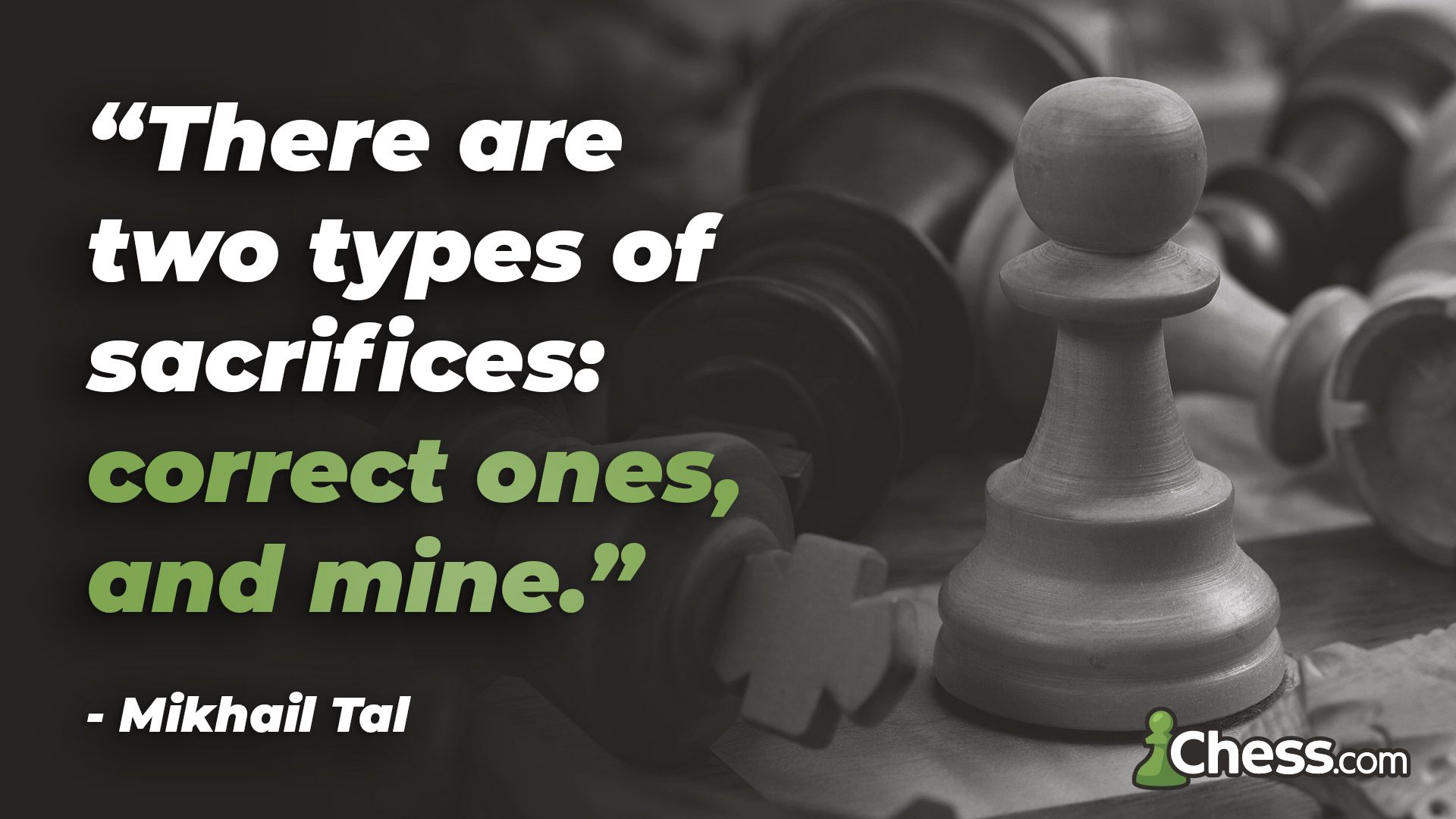
Chess in Literature, Film And Television
- “Amberley excelled at chess—one mark, Watson, of a scheming mind.” — Arthur Conan Doyle, "The Adventure of the Retired Colourman" (1926)
- “Y'all can't be playing no checkers on no chessboard!” — The Wire, Season 1, Episode 3: "The Buys."
- “It's a game, like Monopoly.” — Josh Waitzkin, played by Max Pomeranc, in Searching for Bobby Fischer
- “Sorry Dave, I think you missed it.” — HAL 9000, voiced by Douglas Rain, in 2001: A Space Odyssey. HAL's two-move mating combination is not forced, but Dave believes it and resigns the game anyway. Annotations from the old Chessmaster series of computer games speculate that 2001 director Stanley Kubrick is foreshadowing HAL's mental decline with this scene.
Time Management
- “When you play chess the idea is to make good moves, not quick ones!” — Jeremy Silman
- “Come on. C'mon Vishy, make a move!” — Maurice Ashley commentating during a 1995 Armageddon game in which Viswanathan Anand took nearly two minutes (out of five allotted) on his fourth move. Note, however, that Anand eventually won the game--taking your time to make sure you know what you are doing, even in blitz, can sometimes work out!
Practicality
- “If winning, clarify; if losing, complicate.” — Bruce Pandolfini
- “Don't resign unless you are really sure the position is hopeless.” — John Nunn
- “Take care in ‘dead drawn’ positions; it only takes a few errors for the position to be ‘dead’ rather than ‘drawn’.” — John Nunn

Life Lessons
- “We learn the most from our aches. The 2008 World Championship loss to Vishy was one of my greatest lessons.” — Vladimir Kramnik
- “I came through a system myself and it's my moral duty to give back to the community. What better way than working with a bunch of chess-crazy kids.” — Vladimir Kramnik
- “We learn by chess the habit of not being discouraged by present bad appearances in the state of our affairs, the habit of hoping for a favorable change, and that of persevering in the search of resources.” — Benjamin Franklin
Miscellany
- “Chess never has been and never can be aught but a recreation. It should not be indulged in to the detriment of other and more serious avocations.” — Paul Morphy in 1859
- “I feel sorry for players who are always lying awake at night, brooding over their games.” — Magnus Carlsen in 2010
- “In chess, bigamy is acceptable but monarchy is absolute.” — Garry Kasparov
- “When you see a good move, look for a better one.” — Emanuel Lasker
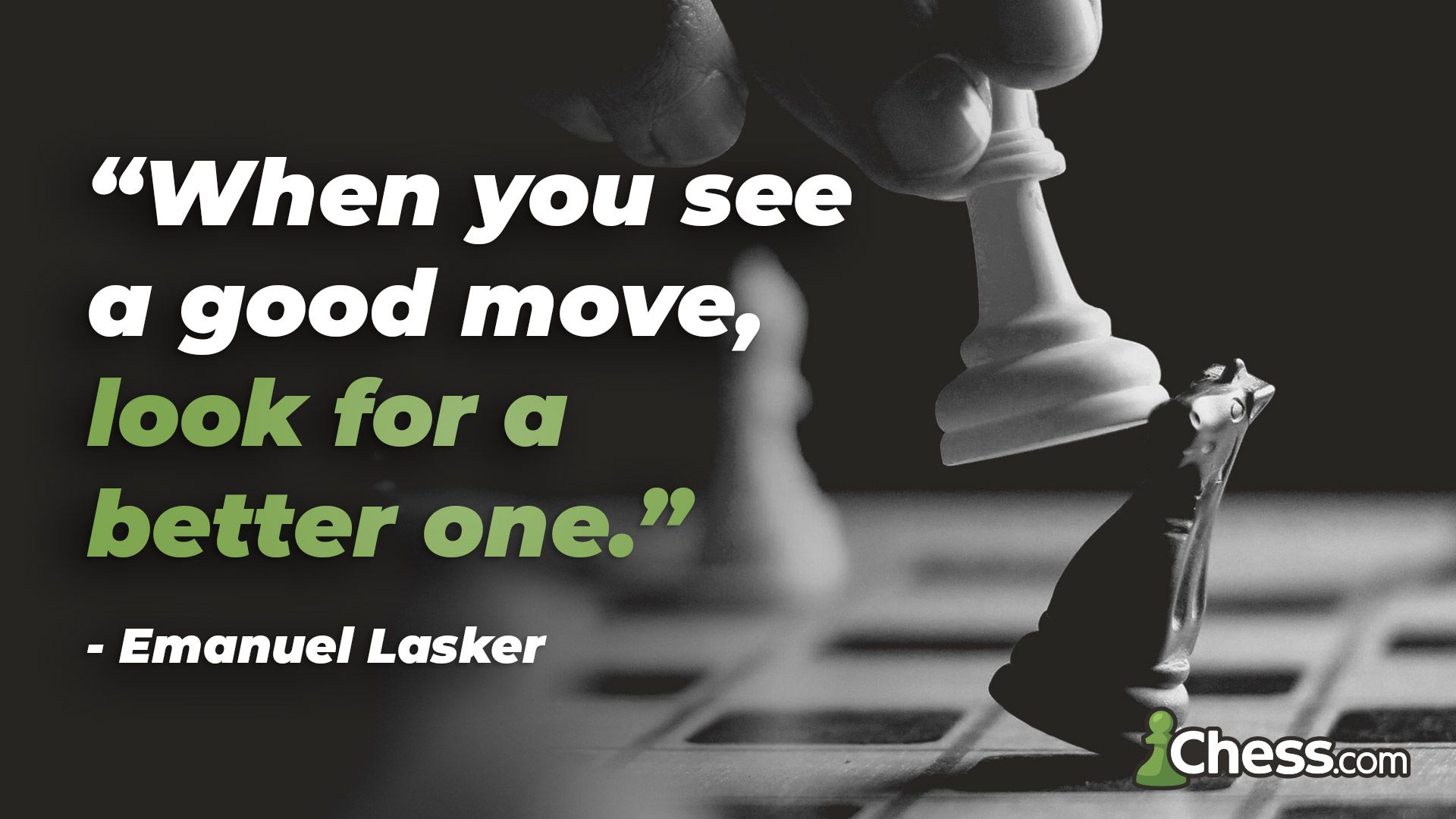
- “When one of us first plays chess, he is like a man who has already caught a dose of microbes...Such a man walks along the street, and he does not yet know that he is ill. He is healthy, he feels fine, but the microbes are doing their work.” — Mikhail Tal
- “At our club, when you lose with a blunder that instantly illuminates the virtues of assisted suicide, we have a cure ... A new game, right away.” — Charles Krauthammer
- “Chess is not a game for dictators for numerous reasons. One, it’s transparent. It’s all information hundred percent available.” — Garry Kasparov
- “Even a poor plan is better than no plan at all.” — Mikhail Chigorin

- “On the chessboard lies and hypocrisy do not survive long. The creative combination lays bare the presumption of a lie; the merciless fact, culminating in a checkmate, contradicts the hypocrite.” — Emanuel Lasker
- “Pawns; they are the soul of chess: it is they alone that determine the attack and the defence, and the winning or losing of the game depends entirely on their good or bad arrangement.” — François-André Danican Philidor
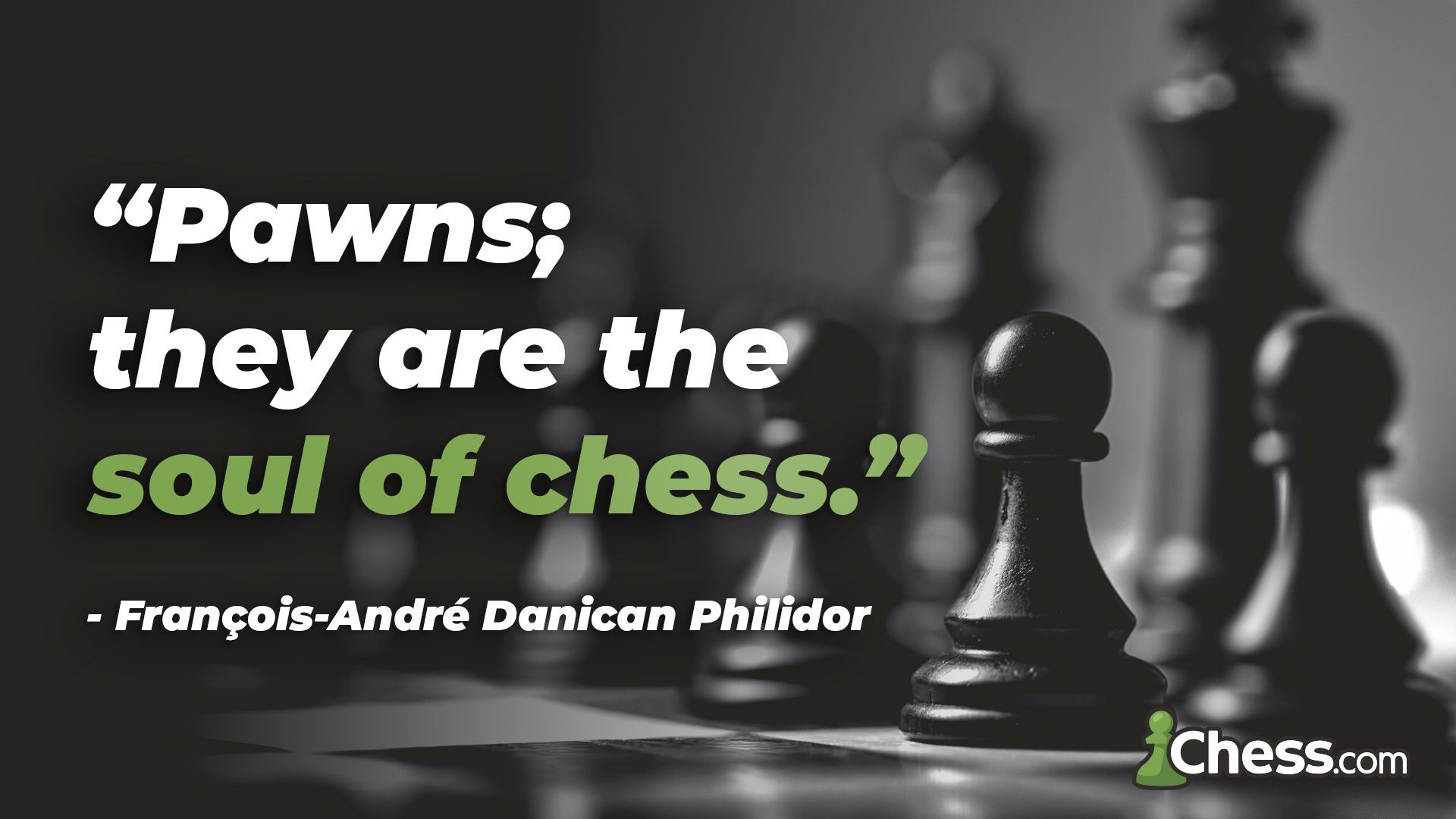
- "I always loved complexity. With chess, one creates beautiful problems." — Marcel Duchamp
- “Chess is a game by its form, an art by its content and a science by the difficulty of gaining mastery in it.” — Tigran Petrosian
References
Vladimir Barsky, "Kramnik Interview: From Steinitz to Kasparov" (Kramnik.com, 2005)
Robert Byrne, “An Imaginative Tactician Who Was at Ease in Complexity” (New York Times, 1995)
Robert Byrne, “In India, Where It All Began, Chess Is Blossoming Again” (New York Times, 2002)
Robert Byrne, “Prophylaxis, for Petrosian, Is the Application of Pacifism” (New York Times, 1973)
Robert Byrne, “Steinitz Lives In Gambit Gantlets” (New York Times, 1987)
Dick Cavett, “Was It Only a Game?” (New York Times, 2008)
Irving Chernev, The Chess Companion (1968)
Garry Kasparov, How Life Imitates Chess (2007)
Lubomir Kavalek, “Chess Champion’s Class Act” (HuffPost, 2010)
Charles Krauthammer, “The Pariah Chess Club” (Washington Post, 2002)
Emanuel Lasker, Lasker's Manual of Chess (1925)
Susan Ninan, "With a little help from Vladimir Kramnik, India in search for next Vishy" (ESPN.com, 2019)
John Nunn, Understanding Chess Move by Move (2001)
Bruce Pandolfini, Pandolfini's Chess Complete (1992)
François-André Danican Philidor, L'Analyse des Echecs (1749)
Chidanand Rajghatta, "Magnus Carlsen package too much for me, Viswanathan Anand says" (Times of India, 2013)
F.F. Rowland, Pollock Memories (1899)
David Shenk, The Immortal Game: A History of Chess (2006)
Jeremy Silman, "Time Management" (Chess.com, 2009)
Andy Soltis, What It Takes to Become a Grandmaster (2016)
Mikhail Tal, The Life and Games of Mikhail Tal (1978)
Wikiquote.org (Paul Morphy, Magnus Carlsen, Garry Kasparov, and Tigran Petrosian)
"Anand’s WhyChess interview" (Chess in Translation, 2012)







